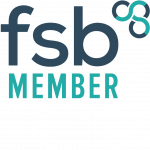Shared ownership, 100% mortgages, joint mortgages, and government schemes
Discover the various options available to first-time buyers to overcome the challenges of getting on the property ladder. Realise your dream of owning a home.
Getting on the property ladder is a dream for many, but for first-time buyers, it can be a daunting challenge. With high house prices, strict lending criteria, and a competitive property market, many first-time buyers struggle to find a way to make their dream of owning a home a reality. However, there are several options available to first-time buyers that can help them get on the property ladder.
Shared ownership
Shared ownership is a popular option for first-time buyers who can’t afford to buy a property outright. It allows you to buy a share of a property (usually between 25% and 75%) and pay rent on the remaining share. A housing association owns the shares, and you can buy additional shares in the future, a process known as “staircasing.”
The benefits of shared ownership include lower upfront costs, smaller mortgage payments, and the ability to increase your ownership over time. It also allows you to get on the property ladder sooner than you might otherwise.
However, there are some drawbacks to shared ownership. For example, you may be limited to buying certain properties, and there may be restrictions on how much you can rent out your property. Additionally, you will have to pay rent on the share of the property you don’t own, which can increase over time.
There are several shared ownership schemes available in the UK, such as the Shared Ownership scheme, which is backed by the government and available to first-time buyers, and the Older People’s Shared Ownership scheme, available to those aged 55 or over. There are also shared ownership properties available through housing associations and private developers.
100% no-deposit mortgages
100% no-deposit mortgages are back! For the first time since 2008, Skipton Building Society has launched a Track Record Mortgage. So if you’re renting but looking to buy your first home, Skipton is now offering a mortgage where no deposit is needed. With other lenders expected to follow suit, there could be a new option on the market for those trapped in rental agreements.
As the name suggests, this type of mortgage allows you to borrow the full amount of the property’s value without having to put down a deposit. This can be helpful for those struggling to save up a deposit, as it reduces the upfront costs of buying a home.
100% mortgages offer lower upfront costs than traditional mortgages, but they may have higher interest rates. This can lead to higher monthly payments, but the overall cost of the mortgage could be lower – while allowing first time buyers to get on the property ladder sooner. However, there are some drawbacks to consider, such as higher interest rates and the risk of negative equity if the property’s value falls.
It’s worth noting that currently only one lender offers 100% no-deposit mortgages and with strict lending criteria. Additionally, you will still need to cover the costs of moving, such as legal fees and stamp duty. There is also a requirement to have paid rent and household bills on time for 12 consecutive months out of the last 18 months.
If you’re considering a 100% mortgage, it’s important to do your research to ensure it’s the right decision for your circumstances. You should also be prepared to pay higher monthly repayments and be aware of the risks involved.
A 100% mortgage can be a good option for first-time buyers struggling to save up a deposit. However, it’s important to carefully consider the costs and risks before making a decision.
Joint mortgages
A joint mortgage is a mortgage taken out by two or more people, typically a couple or family members. The main advantage of a joint mortgage is that it allows multiple borrowers to contribute to the deposit and share the monthly mortgage payments.
Buying with friends is also becoming an increasingly popular option for first-time buyers in the UK, due to rising property prices and stagnant wages. By pooling their resources, friends can afford to buy a property that would be out of reach on their own. However, buying with friends can also be risky, as it can put strain on your relationships and finances.
The benefits of joint mortgages include lower upfront (shared) costs, smaller mortgage payments, and the ability to increase borrowing power. Additionally, joint mortgages can provide more financial stability, as multiple borrowers are responsible for the payments.
However, there are some drawbacks to consider. For example, if one borrower can’t make their share of the mortgage payments, the other borrower(s) will have to cover the shortfall.
Additionally, joint mortgages and buying with friends can be complicated, as each borrower’s financial situation and credit score will be taken into account.
It’s important to have a written agreement in place, outlining each person’s responsibilities and what will happen if one person wants to sell or can no longer afford their share of the property. You should also consider seeking legal advice to ensure the agreement is legally binding.
There are several lenders that offer joint mortgages in the UK, including high street banks and building societies. It’s important to compare different lenders and mortgage products to find the right deal for your circumstances.
Government-backed schemes
In addition to shared ownership, there are several other government-backed schemes available to first-time buyers in the UK. These schemes can help make buying a home more affordable by providing financial assistance or offering discounts on the purchase price.
Lifetime ISA
The Lifetime ISA (Individual Savings Account) is a scheme that allows first-time buyers to save up to £4,000 per year towards a deposit on a home. The government will then provide a 25% bonus on the savings, up to a maximum of £1,000 per year. This bonus can be used towards the purchase of a home worth up to £450,000. The money in the account can be used to purchase a property after the account has been open for at least 12 months. However, if you withdraw the money for any other reason, you will be charged a penalty.
An ISA is a medium to long term investment, which aims to increase the value of the money you invest for growth or income or both. The value of your investments and any income from them can fall as well as rise. You may not get back the amount you invested.
You will incur a lifetime ISA government withdrawal charge (currently 25%) if you transfer the funds to a different ISA or withdraw the funds before age 60 and you may therefore get back less than you paid into a lifetime ISA.
By saving in a lifetime ISA instead of enrolling in, or contributing to an auto-enrolment pension scheme, occupational pension scheme, or personal pension scheme:
(i) you may lose the benefit of contributions from your employer (if any) to that scheme; and
(ii) your current and future entitlement to means tested benefits (if any) may be affected.
Right to buy
The Right to Buy scheme allows eligible council tenants in England to purchase their home at a discount. The discount amount varies depending on the property type, length of tenancy, and location, but it can be up to 70% of the property value. This can be a good option for tenants who have been living in their council home for a long time and want to own their property. However, there are some drawbacks to consider, such as the potential loss of social housing and the responsibility of maintaining the property.
Rent to buy
Rent to Buy is a scheme that allows tenants to rent a property at a discounted rate for a set period of time, with the option to purchase the property at the end of the rental period. This can be a good option for those who are not ready to buy a property outright, but still want to work towards owning a home. However, it’s important to note that not all properties are eligible for the scheme, and the rental rate may still be higher than what some tenants can afford.
The scheme is available in England, apart from London. Properties in London are covered by a separate scheme called London Living Rent.
To roundup
Becoming a first-time buyer in today’s housing market can be an overwhelming and daunting experience. With soaring property prices and strict lending criteria, many individuals and families have found themselves priced out of the market with what seems like no option but to rent.
However, the options discussed in this article offer hope for those looking to take the first step onto the property ladder. From the opening up of 100% mortgages to government-backed schemes, these options can provide a valuable lifeline for those who may have otherwise struggled to buy a home.
While all options come with their own pros and cons, they provide a pathway towards homeownership that may otherwise seem out of reach. Ultimately, by exploring these options and seeking professional advice, first-time buyers can find the right approach to achieve their dream of homeownership.
YOUR PROPERTY MAY BE REPOSSESSED IF YOU DO NOT KEEP UP REPAYMENTS ON YOUR MORTGAGE OR ANY OTHER DEBT SECURED ON IT.
Approved by The Openwork Partnership on 31/07/2023
Status Mortgage Services is a trading style of Status Financial Services Limited which is an appointed representative of The Openwork Partnership, a trading style of Openwork Limited which is authorised and regulated by the Financial Conduct Authority.











